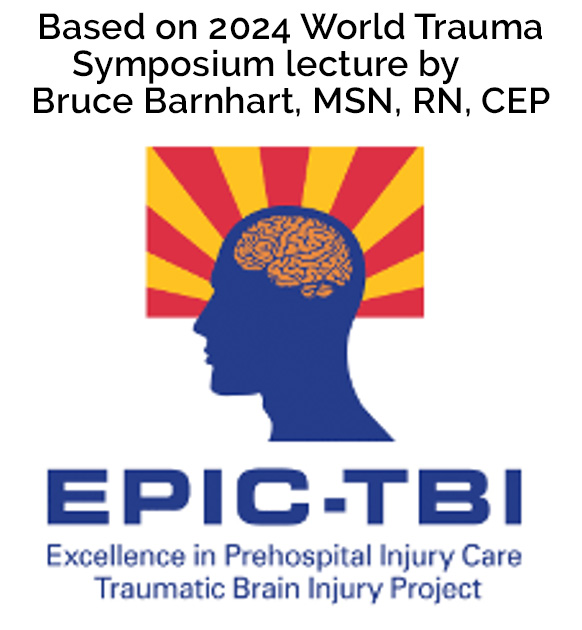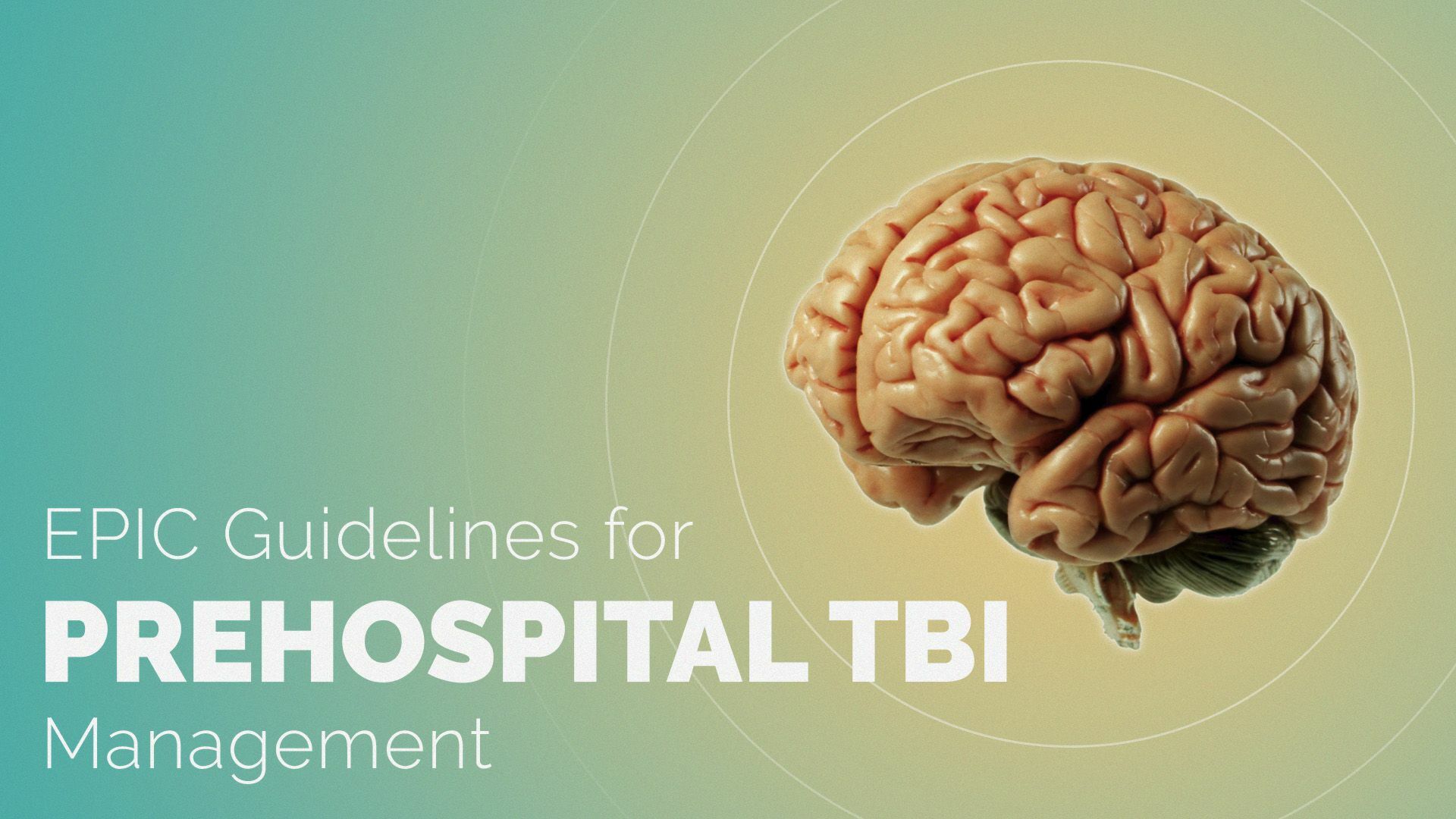

Click here for the EPIC Guidelines for Prehospital TBI Management.
Implementation of these guidelines resulted in: Lower intubation rates, Higher BVM only rates, > likelihood of SpO2 of 100%, Greater reversal of hypoxia, Lower rate of hyperventilation. All ages doubled survival. All ages intubated tripled survival, Peds five X greater survival, 26 min of EMS on scene care improved survival to hospital discharge. All this involved was 1 hour of training, no expensive new treatements just simple interventions. Emphasized that Prehospital care of TBI is EXTREMELY important impact in patient outcomes (prevents secondary injury).
- GCS is a bad marker for TBI. (14-15 had high incidence of TBI while 3 had minimal to no TBI).
- Secondary Injury Hypoxia, Hypotension, Hyperventilation. Mild to moderate TBI can turn into Severe TBI with improper prehospital management.
- Early and aggressive oxygen treatment aim for O2 sat of 100% on ANY suspected TBI. Do Not hyper or overventilate. ETCO2=35-45 (target of 40).
- Prevent Hypotension. SBP ideal is 110(higher probably even better). Threshold to treat is 100mmHg (fluids). Sedation (narcs/sedatives) can rapidly drop BP so use with caution.
- No hyperventilation! EVER! Adults 10/min, kids 20/min, infants 25/min. Ventilator (Bag person) is the most important person in this. Ventilator timing lights, 2 finger technique, flow restriction like the Sotair.
What about impending herniation?? It’s very rare. Hyperventilation decreases ICP by constricting blood flow which constricts oxygenation which worsens brain injury. It is very hard to tell if they are herniating (many things can look like it) and it likely does not stop the herniation anyway, so don’t ever hyperventilate. They recommend never hyperventilating WITHOUT exception (i.e. presumed herniation).


